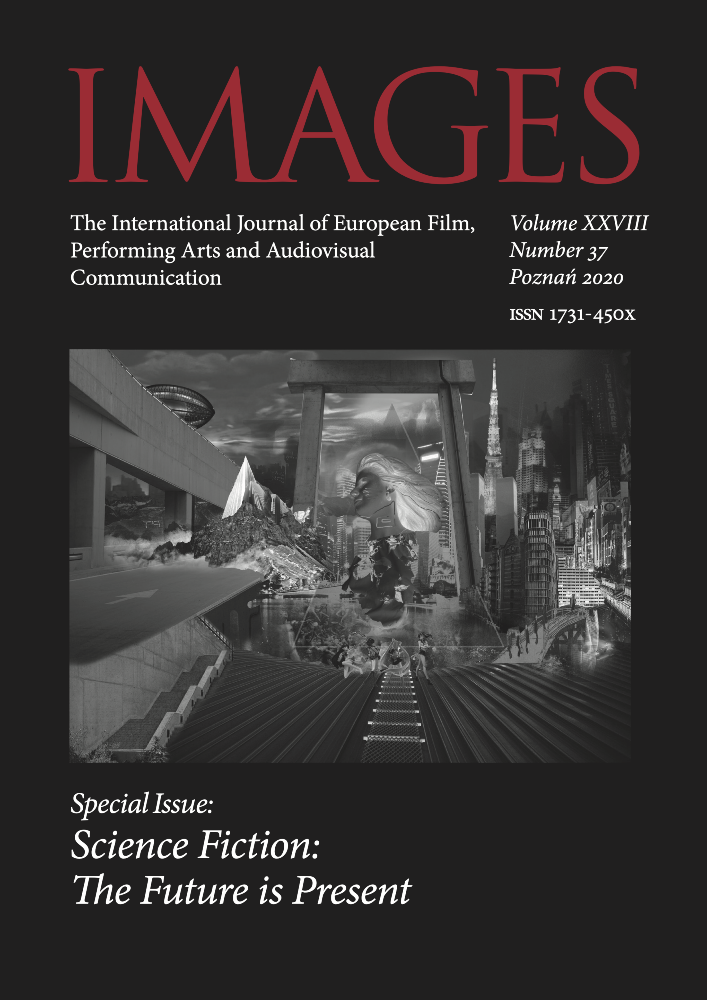Abstract
Drawing upon classic works on Kubrick’s 2001, the author ponders various strategies of interpretation which have been adopted to decipher the film’s discourse. The title category of historiosophy indicates one of the possible interpretational paths: the one associated with the Nietzschean notion of humankind stuck in a liminal stage between an animal and the overman. The author claims that such an understanding was typical of the late 1960s, and he pursues his argument with a close analysis of several sequences from the film, focusing on the formal devices which present the human protagonists as weak and lackluster, while the animal, the technological and the extraterrestrial characters are depicted as vital and irrepressible.
References
Agel J. (red.), The Making of Kubrick’s “2001”, New York 1970
Ciment M., Kubrick. The definitive edition, New York 2003
Clarke A.C., 2001: A Space Odyssey, New York 1968
Clarke A.C., The Lost Worlds of 2001, New York 1972
Daniels D., A skeleton key to 2001, „Sight and Sound”, Winter 1970/1971
Esser M., It’s so very lonely..., [w:] Stanley Kubrick, Hrsg. L.O. Beier, A. Kilb, D. Berz, Berlin 1999
Falsetto M., Narrative and Stylistic Patterns in the Cinema of Stanley Kubrick, Westport 1994
Geduld C., Filmguide to “2001: A Space Odyssey”, Bloomington, London 1973
Helman A., Stanley Kubrick albo synteza rodzajów, „Kino” 1974, nr 12
Jackiewicz A., Kosmiczna podróż Odyseusza, „Kino” 1970, nr 12
Jaspers K., Nietzsche, Warszawa 1997
Kael P., Going Steady, Boston 1970
Kagan N., The Cinema of Stanley Kubrick, New York 1988
Klejsa K., Filmowe oblicza kontestacji. Kino Stanów Zjednoczonych i Europy Zachodniej wobec kultury protestu lat 60. i 70., Warszawa 2008
Kolker R.P., A Cinema of Loneliness, Oxford 1980
Kozłowski K., Stanley Kubrick. Filmowa polifonia sztuk, Warszawa 2013
Krämer, P., „Szanowny Panie Reżyserze...”: listowne reakcje widowni na film „2001: Odyseja kosmiczna” w późnych latach sześćdziesiątych, [w:] Badanie widowni filmowej. Antologia przekładów, red. K. Klejsa, M. Saryusz-Wolska, Warszawa 2014
Lem S., Fantastyka i futurologia, Warszawa 1996
Miller M.C., 2001: generacja oziębłych, „Film na Świecie” 1993, nr 3–4
Nelson T., Kubrick: Inside a film artist’s maze, Bloomington 2000
Nietzsche F., Tako rzecze Zaratustra, Warszawa 1990
Phillips G. (red.), Stanley Kubrick. Rozmowy, Warszawa 2014
Piskorz A., Kubrick Jungiem podszyty, „Iluzjon” 1993, nr 2
Seeslen G., Jung F., Stanley Kubrick und seine Filme, Marburg 1999
Walker A., Stanley Kubrick, Director, New York 2000
Zalewski A., Zasada alegorii. Wątki metafizyczne we współczesnym kinie, „Studia Filmoznawcze” 2000, nr 21
License
Copyright (c) 2020 Konrad Klejsa

This work is licensed under a Creative Commons Attribution 4.0 International License.

